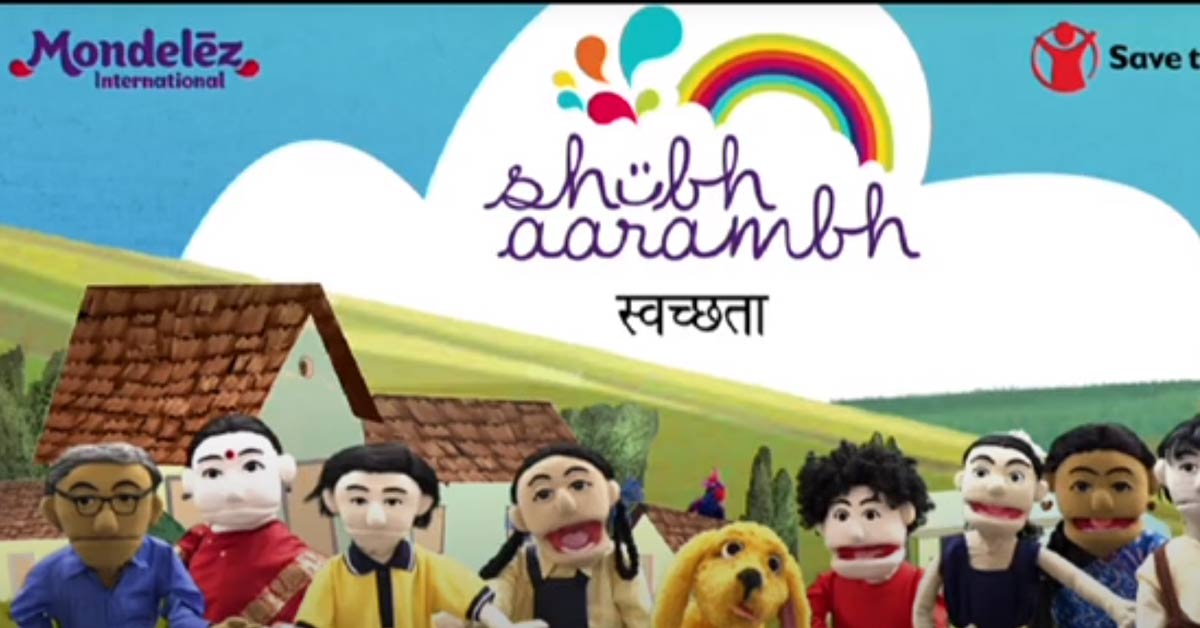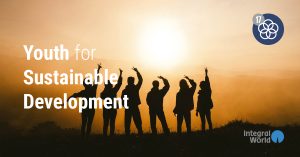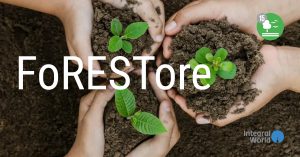Partner: Save the Children
Sector: Nonprofit
Location: 5 locations across four Indian states, viz. Madhya Pradesh, Himachal Pradesh, Maharashtra, and Tamil Nadu
Language: Hindi, Tamil, Marathi
SDGs: GOAL 3: Good Health and Well-being, GOAL 4: Quality Education, GOAL 11: Sustainable Cities and Communities, GOAL 12: Responsible Consumption and Production, GOAL 17: Partnerships to achieve the Goal
Implemented: 2016-17
Collaborating to address intergenerational nutrition and healthy lifestyles
Save the Children is a leading independent child rights organization that fights for children’s rights and delivers immediate and lasting improvement to children’s lives worldwide. In India, Save the Children works on 5 core themes, viz. Child Survival, Education, Child Protection, Humanitarian and Disaster and Risk Management, in collaboration with the Government, civil society organizations, and various communities across 16 Indian states, reaching over 3 million children.
Mondelēz International Foundation is empowering people to lead healthier lives. Their work with Save the Children in addressing health concerns presently involves 5 communities in various parts of India, supporting a unique transition towards a healthier lifestyle and thus bring positive changes in the lives of young children. Childhood and early adolescence are crucial periods when nutritional and physical activity habits are formed. However, mothers and children lacking adequate knowledge about healthier lifestyles and food habits leads to a rising health burden.
Save the Children and Mondelēz International Foundation have partnered together to develop an integrated programme approach for holistic development of children in four States in India – Madhya Pradesh, Himachal Pradesh, Maharashtra and Tamil Nadu. This project, Shubh Aarambh, part of initiatives aimed at “Investing in childhood” and “Securing lasting change through partnerships”, seeks to address the intergenerational needs affecting nutrition and healthy lifestyles of families through activities under the three pillars, viz.
i) Nutrition Education
ii) Sports for Development; and
iii) Growing Fresh Foods
Integral World was tasked with designing a communication tool that would capture the attention of most people across Shubh Aarambh’s diverse target groups. This tool would aid the groups in improving feeding practices, seeking healthy behaviour, establishing community based health, nutrition and childhood development services, and strengthening future resilience.
Implementing Shubh Aarambh
A multi-year and multi-state project, Shubh Aarambh was implemented in 5 locations in India, in the states of Madhya Pradesh, Himachal Pradesh, Maharashtra and Tamil Nadu. Following the integrated programme approach for holistic development of children, the project targets reversing the undernourishment trends, through a consortium model focusing upon:
Nutrition education
- Teaching Nutrition Basics
- Understanding Food Groups
- Ensuring Drinking Water
- Creating Healthy Snacks
- Learning Basic Hygiene
- Providing Safe Water
- Reviewing Proper Sanitation Techniques
- Understanding Parasite intervention & prevention
Active play
- Facilitating Holistic development of kids through active play
- Embracing diverse play games
- Providing regular opportunities for children to play
Growing fresh foods
- Promoting production of nutrient-rich fruits & vegetables
- Building markets for selling fresh foods
- Embracing innovative microfarming
The main target groups for Shubh Aarambh include:
- mothers of young children under six years of age (early healthcare, nutrition and health education);
- children aged 7-14 (physical and sports activities, nutrition education and positive social and life skills);
- youth aged 15-18 (future leaders in building a sustainable, active and healthy community and enhance employability); and
- community members, including parents, (awareness and knowledge of affordable nutrient rich fruits, vegetables and establishment of kitchen gardens).
Through interaction with these groups, the project purposes to increase awareness, knowledge and practice of healthy lifestyles & nutrition. Specifically, it envisions communities committing to managing kitchen gardens, children aged 7-14 consuming a balanced, nutritious diet and playing sports regularly to remain fit and active.
Designing an appealing-to-all communication tool
In developing our thinking around the communication tool required for Shubh Aarambh, we were motivated by the approach and outcomes of the Ministry of Health and Family Welfare’s Rashtriya Kishor Swasthya Karyakram (RKSK), a government health programme for adolescents, in the age group of 10-19 years, which would target their nutrition, reproductive health and substance abuse, among other issues. The programme reached out to 253 million adolescents – male and female, rural and urban, married and unmarried, in and out-of-school adolescents with special focus on marginalized and undeserved groups.
We also understood that the kind of community focus envisioned for Shubh Aarambh required an end-to-end connect, across the entire age spectrum. Through our recce of one of the project villages, we were able to observe at first-hand the life of the community, their expectations and preferences, and thus understand how best to communicate the project to them. At the same time, we were aware of the traditional elements of storytelling in India and the kind of connect available through these modes. We therefore worked out a narrative approach that came from a comfortable cultural climate.
There was nevertheless, room for innovation – recent efforts at television programming for children have seen the success of muppet theatre-like performances. The Indian version of the popular Sesame Street, called Galli Galli Sim Sim, has been quite a hit. We felt animation could be effective in attracting attention, while conveying information about the project, simplifying the more abstract ideas. Not only would this make the learning process more interesting and fun, children relate better to cartoon characters and thus tend to remember important aspects, such as health education, for a longer duration through relating the concepts with the characters.
We therefore decided to create muppet-centered animation videos to depict characters that were very much drawn from the community. We also considered how the community transcends beyond the human element to include even pet animals such as dogs and parrots – these are a constant presence in much of the folk tales we have passed on through the ages as well. Lastly, given that the project villages were located in different linguistic backgrounds, the voiceovers for the muppets were accordingly added in multiple languages.
The 7 muppet films that we developed were all set in an imaginary Aarambh Nagar of Shubhpur, focusing on the lives of 3 families modeled on actual families in the project villages.
| Singh Family |
| Family of 4 Members are Dilip, Suman, son, Kabir, and daughter, Muskaan Dilip is a teacher; Suman a housewife |
| Raj Family |
| Family of 3 Members are Devi, her son, Ajay, and her toddling daughter Munni Devi is an Army widow – her husband died in battle. She manages a store. |
| Kumar Family |
| Family of 2. Members are Ram Kumar and his granddaughter Radha. Radha’s parents died in a road accident while she was young. Ram is an informed farmer Radha is a budding activist. She is highly skilled and manages her expenses herself. |
The members of these families include such characters as a lively and talkative but lazy girl; a parrot that speaks in verses; a strict and caring teacher; an extroverted and short-tempered shop owner, etc.
Each of the seven films showcased one of the following topics:
- Dental health: Learning appropriate steps and times of brushing.
- Vision: Reflecting on children’s behaviour with regard to vision and eating proper meals that help keep their eyesight strong.
- Play: Emphasising the need for physical activities for at least 30 minutes every day along with messages on health and nutrition.
- Child rights: Understanding the right to go to school; right to health; right to play; right to being protected from all materials and situations.
- Stopping child marriages: Providing information about the appropriate age for marriage and the disadvantages of early marriages.
- Healthy eating: Inculcating health-seeking behaviour
- Personal hygiene: Adopting best practices and spreading the message further.
Another “homegrown” element was the inclusion of a song at the end of each film, which summarized the health benefits of the activity, adding a more memorable and interesting audience connection element.
“We have often created puppets for entertainment – it was amazing to be part of a project where puppets are used to impart education and spread important community information”
Shameem Ansari, puppet maker
“As someone managing the project, I was amazed to see how complicated scripts containing tons of educational information on important elements were converted into funloving episodes and everyday moments to which children can no doubt instantly relate and connect.”
Krittika Simlai, Documentation & Advocacy Officer, Save the Children
Shubh Aarambh, a truly auspicious beginning
Phase I of Shubh Aarambh concluded successfully in 2017, with the endline survey reflecting significant progress through improved knowledge as well as attitudinal and behavioural shifts among children and mothers on nutrition and general health. Some of the key findings of this survey include:
- A 64% increase in children with basic knowledge of good nutrition and healthy life
- A 20% increase in children reporting they are physically active and play for an hour each day
- A 50% increase in consumption of veggies, fruits
- A 25% increase in mothers who are aware of common healthy and nutritious foods.
Shubh Aarambh reached approximately 40,421 beneficiaries directly, and many others indirectly. Among these are 10,871 children (age group 7-14 years), and 20,288 mothers, pregnant and lactating women. The project also saw the development of 70 community and 804 individual kitchen gardens, and also 29 well-equipped, safe playing areas. Three parks have been developed and a school lawn has been beautified in two villages, viz. Induri (in Maharashtra) and Baddi (in Himachal Pradesh).
“Due to the number of activities being conducted by the Mondelez India’s Shubh Aarambh team, our children have started attending school regularly, and we have seen a marked improvement in their attendance. Hand washing and regularly incorporating fruits in their diet are some of the changes we have observed in our students.” ~ Swati Kadam, Headmaster, TMC School
“This is the first time in my life I have observed corporations, civil societies, public representatives and government officials join together on a single platform to ensure the health and development of children in the villages,” says Shiv Kumar Sharma, Joint Director, Ministry of Women and Child Development, Chambal Division
“Good values and good business go hand in hand. Our CSR program, Shubh Aarambh has touched lives of about 1,00,000 beneficiaries in a short period of two years and has symbolized new beginnings for the youth. Young people have had the opportunity to access health & nutrition education, participate in play & sports activities leading to social development & education; while kitchen gardens have enabled them to grow their own fruits and vegetables, helping create self-sustenance. Our goal is to build a healthy, educated and productive next generation by closely working with them in their schools and communities. We have tremendous support from local government and communities and would like to thank them for their efforts.” ~ Ophira Bhatia, Director – Corporate & Government Affairs, India & South East Asia, Mondelez International
Keywords: CSR, self-sustenance, nutrition, health, healthy life, muppet, nutrition education, fresh food, active play, play, activities, community, kitchen garden, Films, Muppet Videos, Educational Videos, GOAL 3: Good Health and Well-being, GOAL 4: Quality Education, GOAL 11: Sustainable Cities and Communities, GOAL 12: Responsible Consumption and Production, GOAL 17: Partnerships to achieve the Goal




